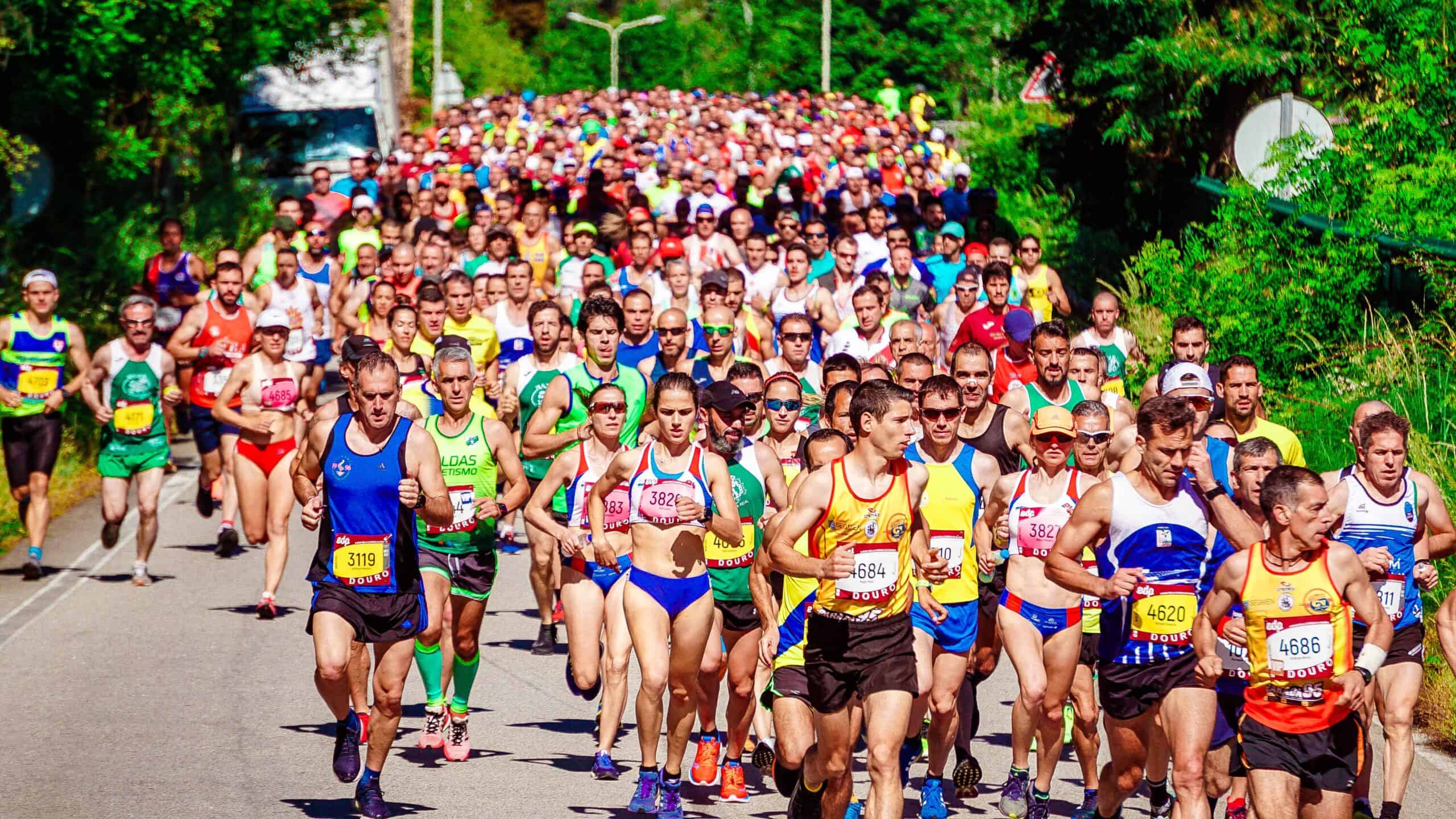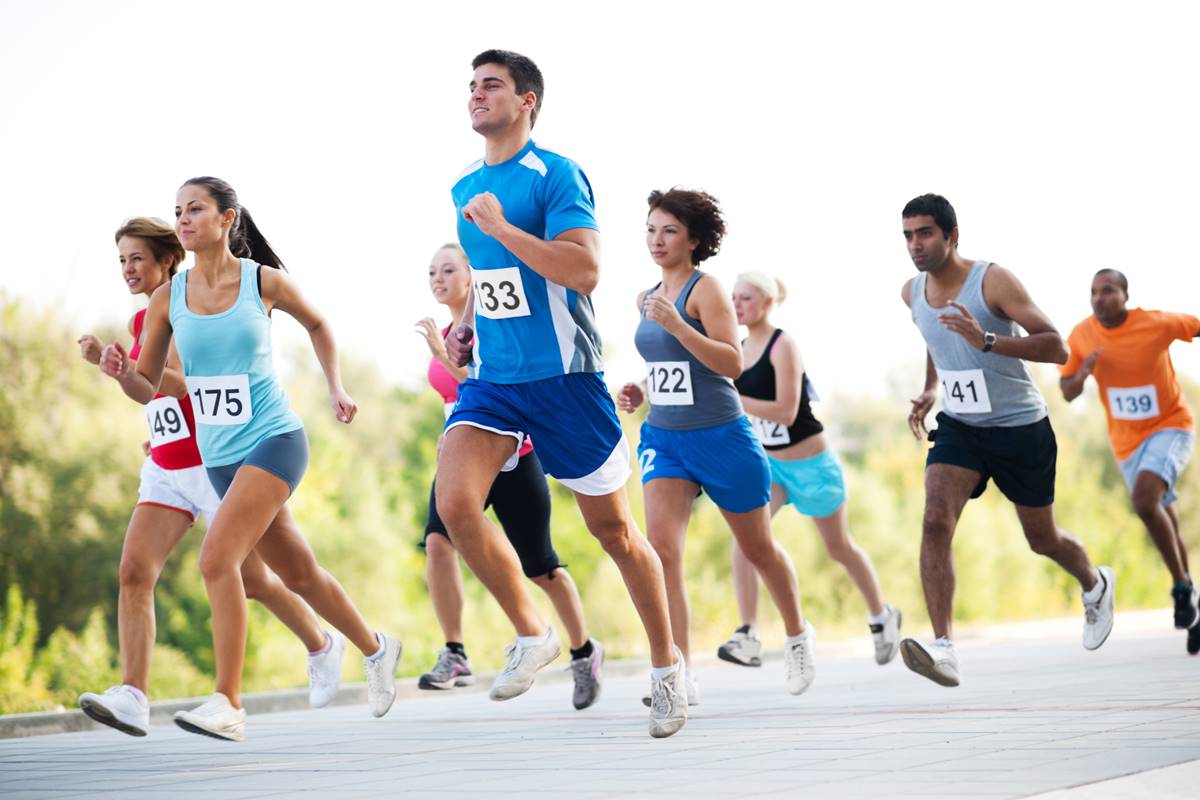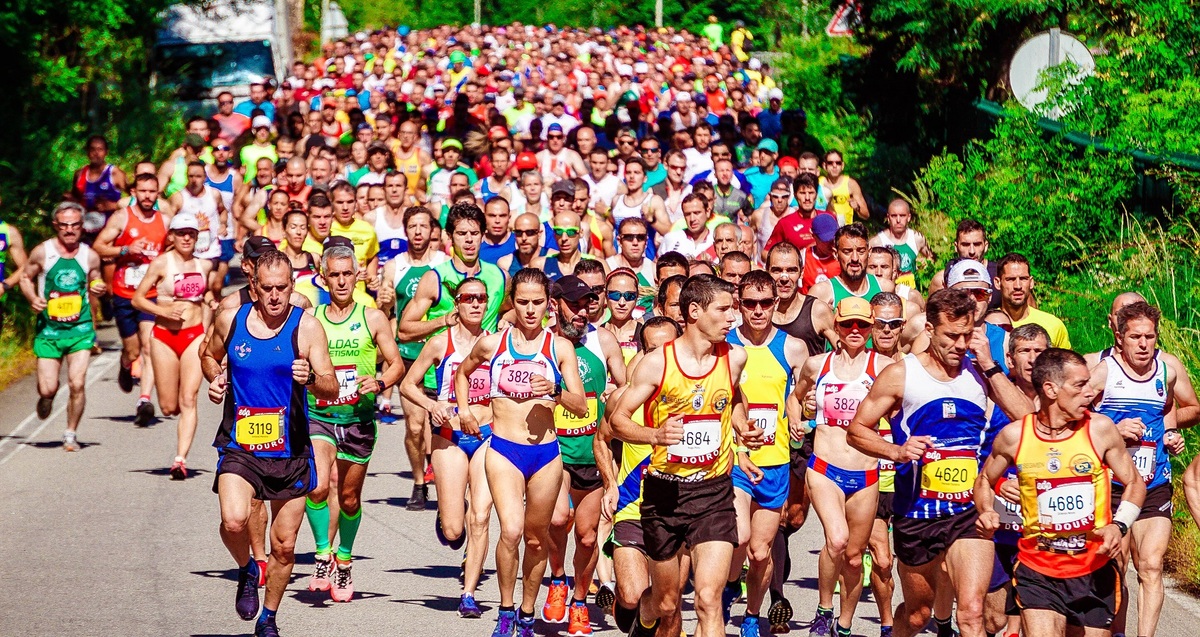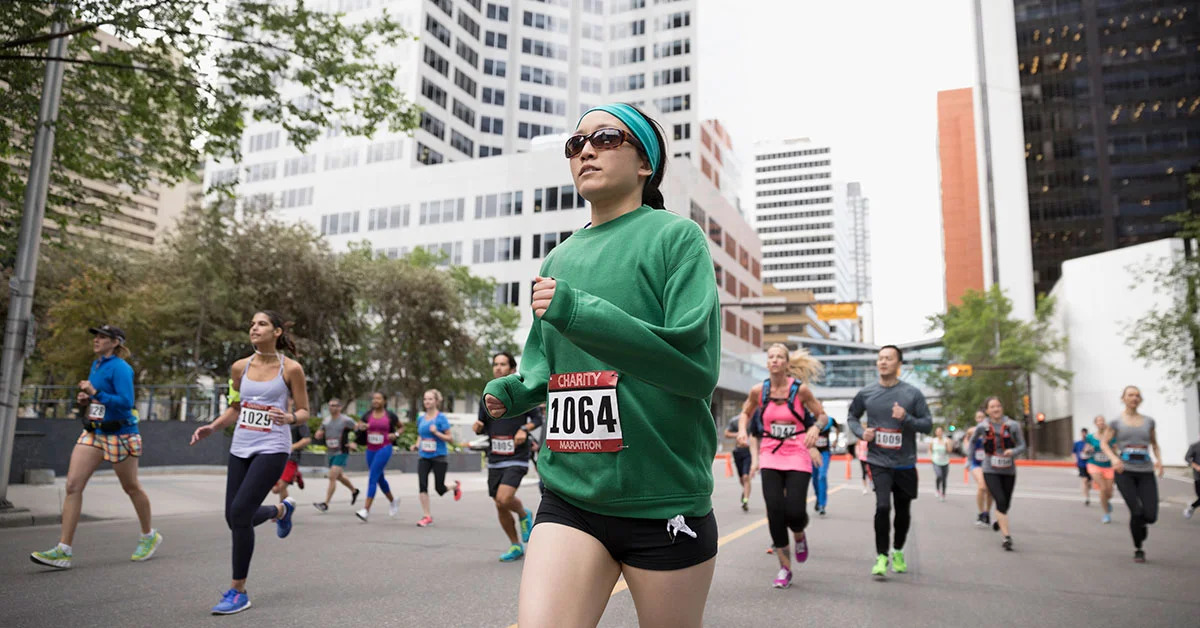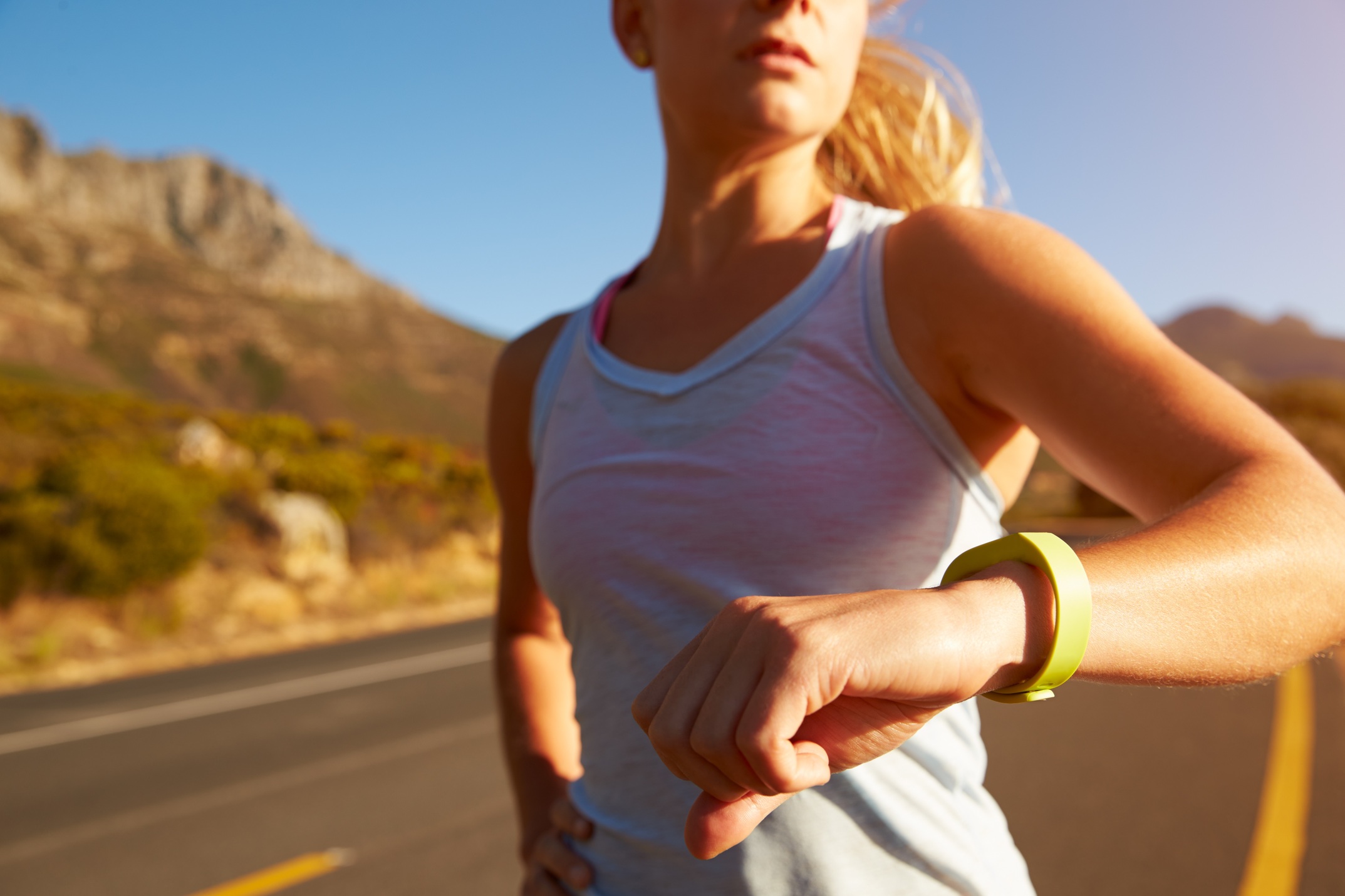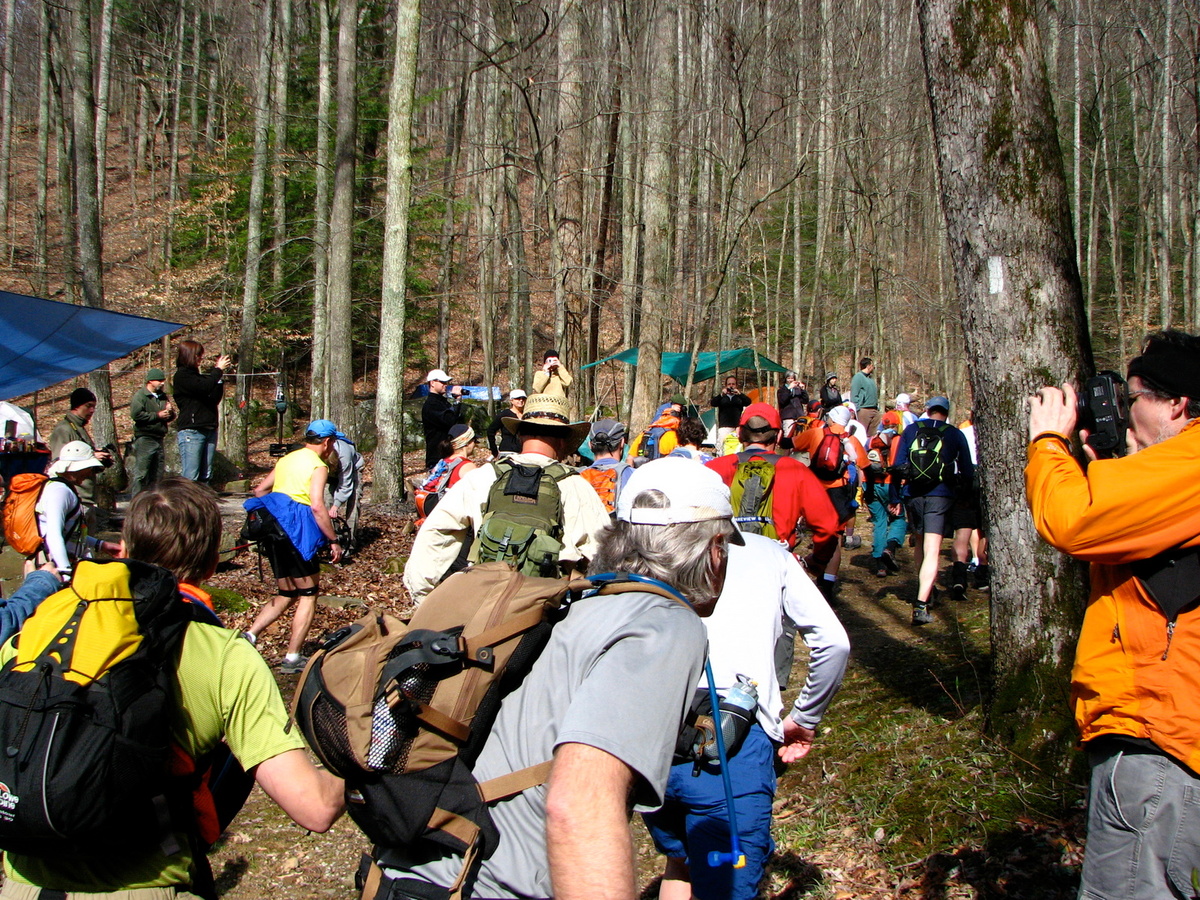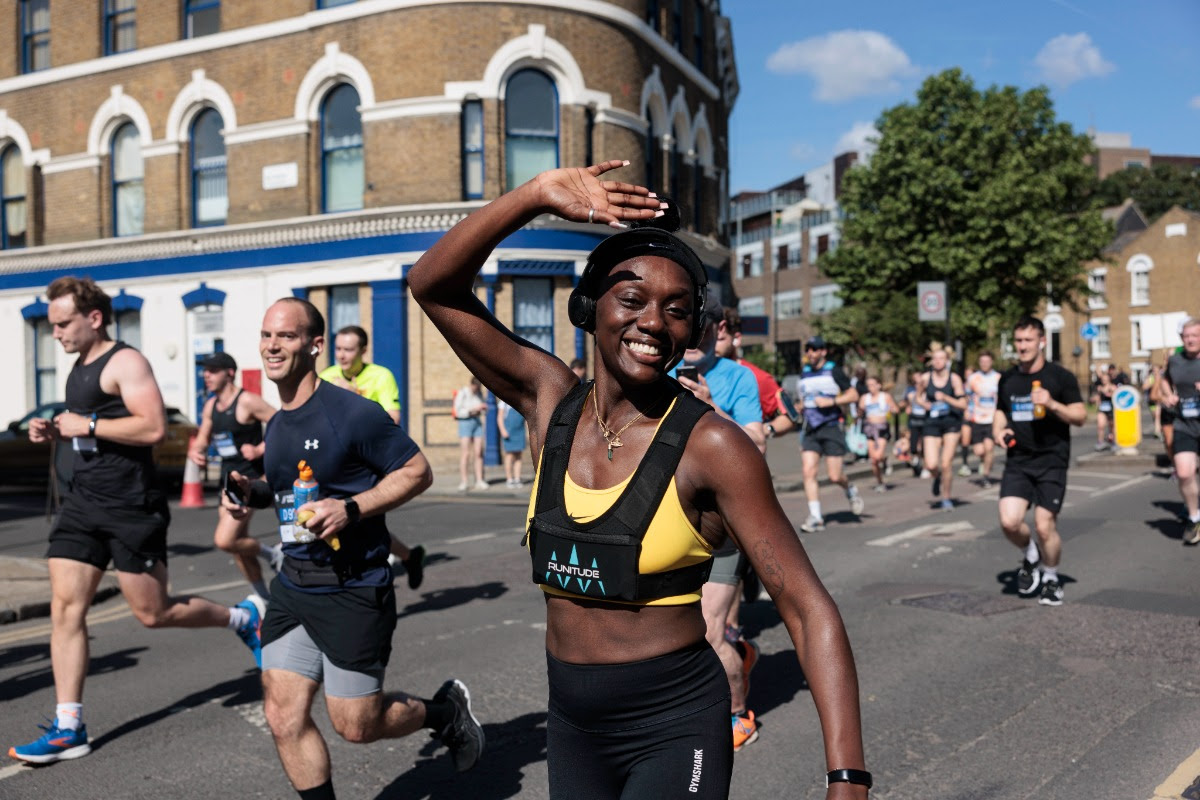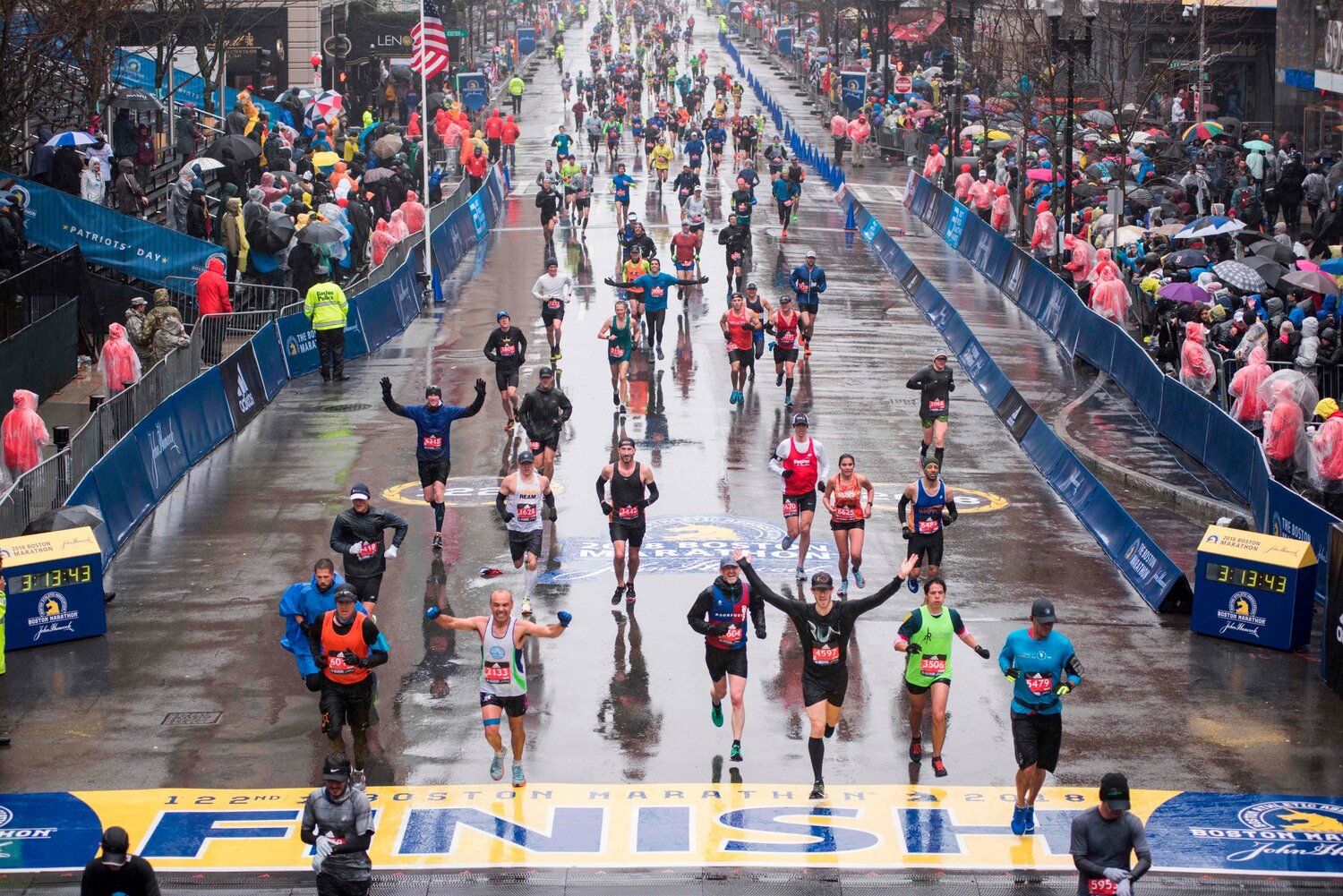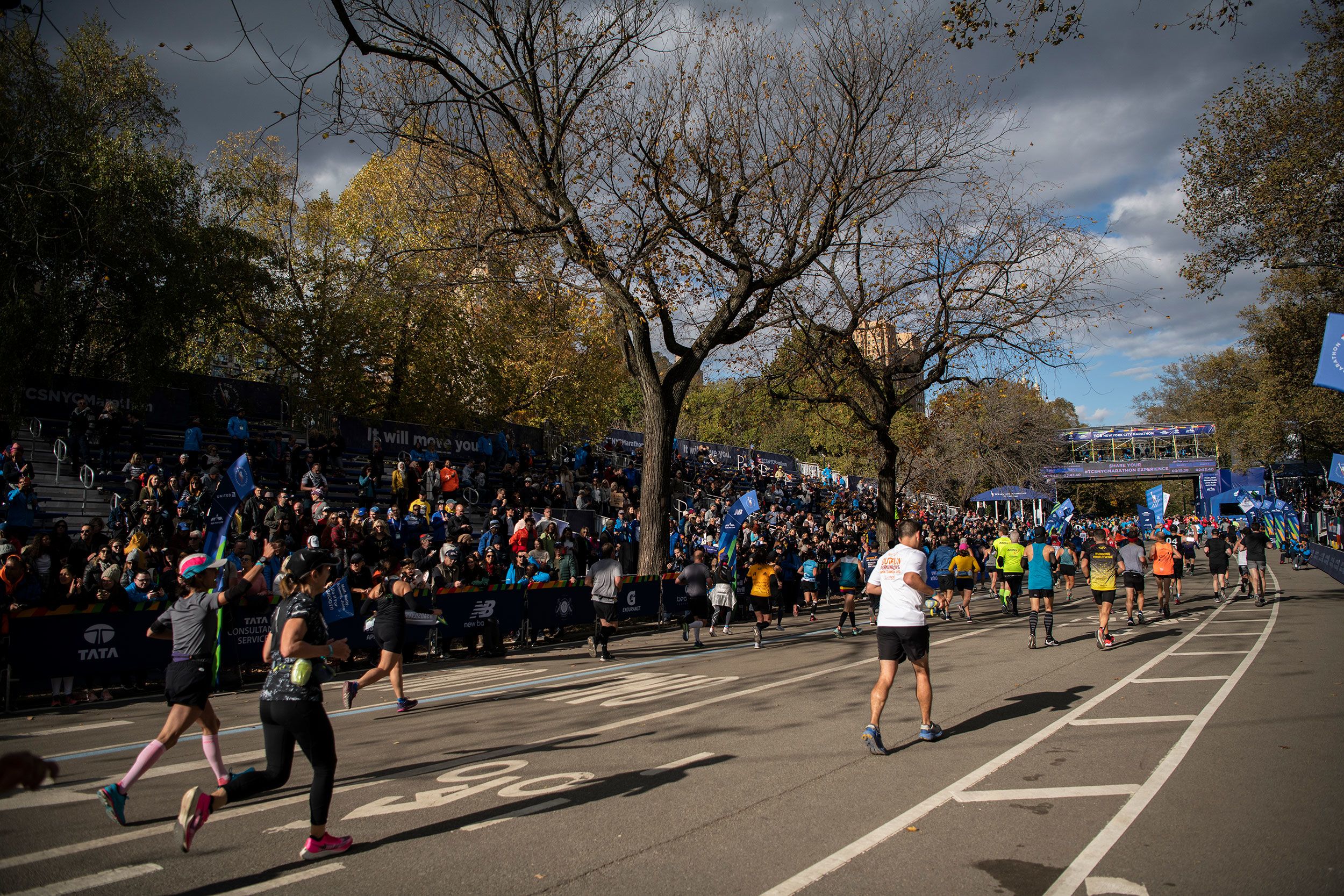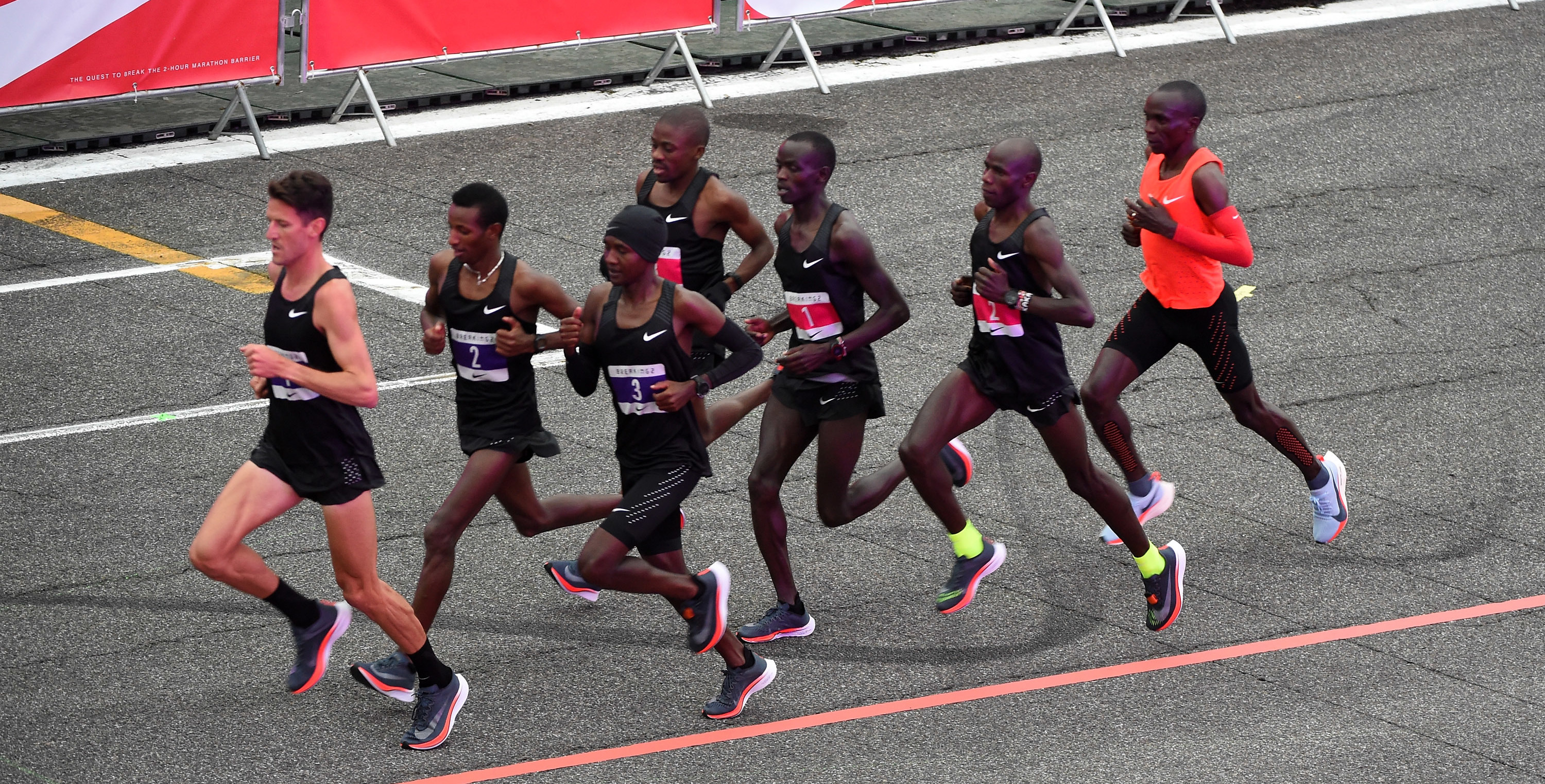

Featured
What Pace Is A 2 Hour Marathon
Modified: January 22, 2024
Discover the pace needed to achieve a 2-hour marathon and get featured in the running world. Uncover the secrets of elite runners and track their breathtaking performances.
Introduction
Marathons, the ultimate test of endurance and determination, have captivated runners and spectators for decades. As athletes push the boundaries of human potential, the question arises: what pace is required to achieve a 2-hour marathon? Breaking the 2-hour barrier has long been considered a mythical feat, but with advancements in training methods and technology, the possibility is becoming more attainable. In this article, we will delve into the factors affecting marathon pace, explore the training strategies employed by elite athletes, and discuss the future of marathon running.
The marathon, a 26.2-mile race, has been an Olympic event since the modern Games began in 1896. Over the years, athletes have gradually chipped away at the marathon world record, pushing the limits of human speed and endurance. Currently, the fastest marathon time stands at 2 hours, 1 minute, and 39 seconds, set by Eliud Kipchoge of Kenya in 2019. While this remarkable achievement brought us closer to the elusive 2-hour mark, it also ignited a fervor among runners and scientists alike, sparking a quest to uncover the secrets behind achieving this monumental milestone.
Several factors come into play when attempting to break the 2-hour barrier. First and foremost is the runner’s fitness level and genetic predisposition. Elite marathoners possess extraordinary aerobic capacity, efficient running mechanics, and a high tolerance for lactic acid buildup. Additionally, environmental conditions such as temperature, elevation, and wind can greatly impact performance. Even small variations in weather can make a significant difference when every second counts.
To calculate the pace required for a 2-hour marathon, we need to understand that it translates to a blistering average pace of approximately 4 minutes and 35 seconds per mile or 2 minutes and 51 seconds per kilometer. This ambitious goal demands impeccable speed and endurance, as well as the ability to maintain this pace over the entire 26.2 miles.
Achieving a 2-hour marathon requires a rigorous training regimen. Elite athletes dedicate countless hours each week to develop their aerobic capacity, improve their running economy, and build mental fortitude. Training includes a mix of long runs, speed workouts, hill repeats, and strength training. In addition, nutrition and recovery play a vital role in optimizing performance and minimizing the risk of injury.
The quest for the 2-hour marathon is not just about breaking records; it is about redefining human limits. As technology continues to advance, we may witness new training methods, innovative gear, and cutting-edge research that push the boundaries even further. With each passing year, the possibility of a sub-2-hour marathon becomes more tangible, inspiring both athletes and enthusiasts around the world.
The Fastest Marathon Times in History
Over the years, marathon running has evolved, and world records have been broken as athletes strive for that optimal blend of speed and endurance. It’s fascinating to look back at the fastest marathon times in history and see the incredible progress made in the sport.
In recent history, the world record for the men’s marathon has seen significant advancements. In 2003, Paul Tergat of Kenya became the first man to break the 2:05 mark, finishing in an impressive time of 2:04:55. This achievement set the stage for even faster times in the years to come.
The record continued to be shattered, with each new mark inching closer to the 2-hour barrier. In 2008, Patrick Makau of Kenya made history by clocking a time of 2:03:38, setting a new world record. This feat was followed by Dennis Kimetto’s incredible run in 2014 when he crossed the finish line in 2:02:57, becoming the first man to break the 2:03 barrier.
However, the most iconic moment in marathon history came in 2019 when Eliud Kipchoge completed the INEOS159 Challenge, a special event designed to break the elusive 2-hour marathon barrier. While the record didn’t count as an official world record due to the controlled race conditions, Kipchoge’s time of 1:59:40 was a historic achievement, showcasing the ultimate potential of human athleticism.
On the women’s side, similar progress has been made. In 2003, Paula Radcliffe of Great Britain shocked the running world with her record-breaking time of 2:15:25, a mark that still stands today. Her remarkable performance highlighted the potential of female marathon runners, and since then, several women have come close to breaking that record.
In 2019, Brigid Kosgei of Kenya made headlines by setting a new women’s world record at the Chicago Marathon. Her time of 2:14:04 surpassed Radcliffe’s long-standing record and cemented her status as one of the greatest female marathon runners of all time.
As we witness these incredible accomplishments, it’s clear that marathon running continues to evolve. Athletes are pushing the boundaries, and with every record broken, new possibilities emerge. The drive to break the 2-hour marathon barrier is not just about setting a new record; it’s about defying the limits of human potential.
Breaking the 2-Hour Barrier
For decades, breaking the 2-hour marathon barrier has been the holy grail of long-distance running. Shaving off those few precious minutes seems like an insurmountable challenge, but with advancements in training methods, nutrition, and technology, the dream of achieving this monumental feat is becoming a reality.
In 2017, Nike staged the Breaking2 project, a scientific and athletic endeavor aimed at achieving a sub-2-hour marathon. The race took place on a specially designed course, with a team of world-class athletes led by Eliud Kipchoge. While Kipchoge fell just 25 seconds short of the target, crossing the finish line in 2:00:25, the event showcased the immense potential for breaking the barrier.
Two years later, Kipchoge made history by running a marathon in under 2 hours during the INEOS159 Challenge. This achievement was made possible through meticulous preparations, including innovative footwear, optimized pacemaking, and ideal race conditions. Although not an official world record, it highlighted the incredible athleticism and determination required to challenge the boundaries of human performance.
The Breaking2 project and subsequent events like the INEOS159 Challenge provided valuable insight into the strategies and techniques required to break the 2-hour barrier. They demonstrated the importance of optimizing every aspect of the race, from equipment and pacing to nutrition and mental fortitude.
One key factor in breaking the barrier lies in running economy. Elite marathoners must find the most efficient way to utilize their energy over the course of 26.2 miles. This involves perfecting running form, focusing on stride length and cadence, and minimizing wasted movement. Additionally, improvements in shoe technology, such as lightweight and cushioned designs, can reduce energy expenditure and enhance performance.
Pacing also plays a critical role. Maintaining a consistent and fast pace throughout the entire race requires precise timing and strategizing. Utilizing a team of pacers who can set the pace and shield the runner from wind resistance can make a significant difference. Monitoring heart rate, oxygen consumption, and lactate levels during training and competition helps determine the optimal pace for maximum efficiency.
Lastly, mental strength and belief are key factors in breaking the barrier. Endurance athletes must possess unwavering determination and discipline to push through moments of physical and mental fatigue. Visualization techniques, positive reinforcement, and a resilient mindset can help the runner overcome challenges and maintain focus during the most grueling sections of the race.
Breaking the 2-hour barrier remains an ongoing pursuit, with new advancements and strategies constantly emerging. Each attempt brings us closer to unlocking the secrets of human performance and challenging the limits of what is possible in marathon running.
Factors Affecting Marathon Pace
Achieving a desired marathon pace involves a multitude of factors that can significantly impact an athlete’s performance. Understanding these factors is essential for marathon runners looking to maximize their potential and reach their goals. Let’s explore the key factors that affect marathon pace.
1. Fitness Level: Perhaps the most critical factor is the runner’s overall fitness level. This includes aerobic capacity, muscular strength, and endurance. Well-trained athletes with higher levels of fitness can sustain faster paces for longer periods, allowing them to maintain a consistent speed throughout the race.
2. Genetics: Genetics also play a role in marathon performance. Certain genetic traits, such as a higher percentage of slow-twitch muscle fibers, can provide an advantage in endurance events. However, with proper training and conditioning, athletes can overcome genetic limitations and improve their marathon pace.
3. Experience and Training: Experience and training are vital in preparing for a marathon. Runners who have consistently trained over a significant period are more likely to have developed the stamina and mental fortitude needed to maintain a desired pace. Training also helps improve running economy, efficiency, and the body’s ability to utilize oxygen effectively.
4. Terrain and Course Profile: The terrain and course profile can greatly affect marathon pace. Hilly courses or uneven terrain may slow down runners, requiring more energy to navigate inclines and descents. Conversely, flat and fast courses with gentle declines can facilitate faster paces and potentially better overall race times.
5. Weather Conditions: Weather conditions can have a significant impact on marathon pace. Extreme heat or cold can hinder performance and increase the risk of dehydration or hypothermia. Likewise, strong winds can create resistance and make it more challenging to maintain a desired pace.
6. Nutrition and Hydration: Proper nutrition and hydration are crucial for maintaining marathon pace. Adequate fueling with carbohydrates before and during the race, along with hydration to replace lost fluids, helps sustain energy levels and prevent fatigue. Poor nutrition and dehydration can lead to a decline in pace and compromised performance.
7. Mental Factors: Marathon running is as much a mental challenge as it is a physical one. Factors such as motivation, focus, and mental strength can greatly impact pace. Positive self-talk, visualization, and mental strategies to cope with fatigue and pain can help maintain a desired pace throughout the race.
Understanding these factors and incorporating them into training and race strategies can help marathon runners optimize their pace and achieve their goals. By addressing each aspect systematically and tailoring training to individual needs, runners can set themselves up for success on race day.
Pace Calculations for a 2-Hour Marathon
Calculating the pace required to achieve a 2-hour marathon requires breaking down the distance into manageable intervals and determining the average pace needed to maintain throughout the entire race. Let’s delve into the pace calculations for a 2-hour marathon.
A 2-hour marathon is equivalent to completing 26.2 miles in 120 minutes. To determine the necessary average pace, we divide the total time by the distance. This calculated pace gives us an idea of the speed required to achieve this ambitious goal.
For a 2-hour marathon, the average pace would be approximately 4 minutes and 35 seconds per mile or 2 minutes and 51 seconds per kilometer. This means that the runner would need to maintain this blistering speed consistently throughout the entire race.
To put it into perspective, if we consider the mile pace, each mile would need to be completed in 4 minutes and 35 seconds. Breaking it down further, a kilometer would need to be run in approximately 2 minutes and 51 seconds.
Pacing is crucial in marathon running, and maintaining this fast and consistent speed requires a high level of fitness, technical proficiency, and mental fortitude. It’s comparable to running a series of fast intervals, but with the added challenge of sustaining the pace over an extended distance.
It’s important to note that while a 2-hour marathon remains a monumental achievement, advancements in training methods, nutrition, and technology continue to reshape what was once deemed impossible. As more elite athletes push the boundaries, we may witness new records being set and a potential breakthrough of the 2-hour barrier in the future.
Calculating the pace for a 2-hour marathon helps us understand the incredible speed and endurance required to achieve this milestone. It highlights the remarkable capabilities of the human body and the constant pursuit of pushing beyond limits in the world of marathon running.
Training Strategies for Achieving a 2-Hour Marathon
Training for a 2-hour marathon requires a meticulously planned and executed approach. Elite athletes who aspire to break this barrier implement specific strategies to optimize their speed, endurance, and mental resilience. Let’s explore some of the training strategies employed by these athletes on their quest for a 2-hour marathon.
1. High Mileage: Elite marathoners often log a high volume of miles during training. This includes a combination of long runs, moderate-paced runs, and recovery runs. Building a solid aerobic base through consistent mileage helps improve endurance and prepares the body for the demands of a marathon.
2. Tempo Runs: Tempo runs are an essential component of marathon training. These are sustained efforts at a challenging pace, slightly faster than marathon goal pace. Tempo runs improve lactate threshold, increase stamina, and simulate the demands of running at an intensified speed for an extended period.
3. Interval Training: Interval training involves short, intense bursts of speed followed by recovery periods. This type of training improves anaerobic capacity, speed, and running economy. Interval sessions typically include intervals at faster than goal marathon pace, helping athletes become accustomed to running at a faster speed for longer periods.
4. Hill Repeats: Incorporating hill repeats into training provides significant benefits. Running uphill strengthens leg muscles, improves power, and enhances aerobic capacity. It also builds mental fortitude and prepares runners for challenging sections of a marathon course.
5. Strength Training: A well-rounded training program includes strength training to improve overall muscular strength, stability, and balance. Exercises targeting the core, hips, glutes, and lower body can help prevent injuries and enhance running efficiency.
6. Nutrition and Hydration: Proper nutrition and hydration before, during, and after training sessions are crucial for optimal performance and recovery. Fueling the body with the right nutrients, including carbohydrates and proteins, supports energy production, muscle repair, and glycogen reserves.
7. Mental Conditioning: Mental preparation is key to tackling the mental hurdles of a marathon. Visualization techniques, positive affirmations, and mental rehearsal can help athletes develop focus, endurance, and the ability to push through fatigue and pain.
8. Recovery and Rest: Adequate recovery and rest are vital in any training plan. Allowing time for the body to repair and rebuild strengthens muscles and reduces the risk of overuse injuries. Incorporating regular rest days and adopting recovery strategies, such as foam rolling and gentle stretching, is essential for long-term success.
These training strategies, in conjunction with a comprehensive training plan tailored to individual abilities and goals, can help athletes reach their full potential in pursuit of a 2-hour marathon. Consistency, dedication, and a growth mindset are key as athletes strive to push the boundaries of human performance.
The Future of Marathon Running
Marathon running has come a long way since its inception, and as we look towards the future, it’s clear that the sport will continue to evolve. Advancements in technology, training methodologies, and scientific research are reshaping the landscape of marathon running, paving the way for new possibilities and achievements.
One area where significant advancements are being made is in shoe technology. Recent developments have led to the creation of lightweight and highly cushioned shoes that optimize energy return and improve running economy. These innovations have the potential to enhance performance, increase speed, and reduce injury rates.
Training methods are also being refined and personalized to maximize an athlete’s potential. With the help of data analytics and wearable devices, coaches can track and analyze an individual’s performance metrics, physiological responses, and recovery patterns. This data-driven approach allows for more precise training plans tailored to specific needs and could potentially unlock new levels of performance.
Furthermore, the exploration of nutrition and supplementation is an ongoing focus in marathon running. Researchers are studying the effects of different dietary strategies on performance, ranging from optimizing carbohydrate intake to experimenting with fuels such as ketones. Understanding the intricacies of fueling the body for optimal performance will continue to shape athletes’ training and race day strategies.
The quest to break the 2-hour marathon barrier has sparked a wave of innovation and experimentation. Events like the Breaking2 project and the INEOS159 Challenge have provided valuable insights into pacing, pacemaking, and race conditions. As technology advances, we may witness new attempts and breakthroughs that bring us closer to this monumental achievement.
In addition, the inclusivity and accessibility of marathon running will likely continue to expand. With more people embracing the sport, virtual races, and international participation, marathons are becoming a global phenomenon. The growing popularity of charity running and community engagement is creating a positive impact on society while inspiring individuals from all walks of life to pursue their running goals.
As we look ahead, the future of marathon running holds endless possibilities. Elite runners will continue to push the boundaries of human potential, inspiring the next generation of athletes. Innovations in technology and training will enable runners to achieve new levels of performance, while the social and cultural impact of marathons will continue to ignite passion and create lasting memories for participants and spectators alike.
Marathon running is an ever-evolving sport, and the future promises exciting developments that will shape the way we train, compete, and experience the joy of crossing that finish line.
Conclusion
Marathon running is a captivating sport that combines physical endurance, mental resilience, and the pursuit of pushing beyond limits. The quest for a 2-hour marathon has captivated athletes and enthusiasts, serving as a testament to human potential and the relentless pursuit of greatness.
Through the exploration of the fastest marathon times in history, we have witnessed the gradual progression towards breaking the 2-hour barrier. Records have been shattered, and new milestones have been set, continually inspiring athletes to reach new heights.
Factors such as fitness level, genetics, training methods, terrain, and weather conditions all play a crucial role in determining marathon pace. Understanding these factors allows athletes to optimize their training and race strategies, inching closer to their goals.
Training for a 2-hour marathon requires dedication, perseverance, and a multifaceted approach. High mileage, tempo runs, interval training, strength training, and mental conditioning are all key components of a well-rounded training plan.
As technology and research continue to advance, we can expect exciting developments in the future of marathon running. Innovations in shoe technology, data analytics, and nutrition will enable athletes to push beyond the current limits, rewriting the record books and inspiring a new generation of runners.
Marathon running is not just about breaking records; it is a celebration of the human spirit and a testament to the power of perseverance. As athletes continue to chase the 2-hour marathon mark, they inspire us all to push beyond our own limits and strive for greatness in every aspect of our lives.
Whether it’s the pursuit of a sub-2-hour marathon or the personal achievement of completing a marathon, this sport embodies the essence of the human spirit – the unwavering determination to defy odds, conquer challenges, and celebrate the joy of crossing that finish line.

